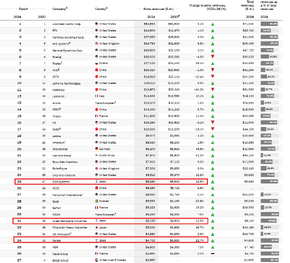What exactly is being misinterpreted? Your position has been to downplay the significance of US aid to Israel. Swerve is pointing out that Israel received many important pieces of kit that were likely vital to Israel's war efforts over the years, and that the volume of aid to Israel has been absolutely massive.
American aid to Israel is objectively the aid mechanism most favorable to the US and least favorable to the nominal recipient, and one of the most volumetrically insignificant ones. And yet it is talked about x100 more than all other aid mechanisms combined.
It is therefore clear that at least 99% of debate on the topic is emotional and not reasonable. The best case for that is that most critics of the mechanism do not understand the basic facts of this and general aid programs.
I said that Israel never really got much money out of it. That is an objective statement. It never was nor meant to be some financial driver. Israel got military surplus items. The word surplus means all those missiles cited earlier are of variants and age that the US preferred not to use anymore. They ended up in warehouses. The US gave Israel a quota and said go pick whatever you find that's useful. And most of that stuff before the 2000's just found its way into Israeli warehouses and never really used.
In the 2000's the Israeli MoD started making effective use of the program, buying more advanced items. But the Israeli economy which had just opened to the global market - boomed. And the nominal sum of the aid was no longer relevant.
After the 1973 war the US sent emergency aid to Israel in the form of more tanks and aircraft but that's a separate program, not the FMF.
The cost is the price that those Strykers could be sold for on the open market minus the cost of delivering them to whoever would buy them. In this case it's also likely a form of competition on behalf of private interests with public funds. Poland produces the Rosomak APC. In theory they shouldn't need the Stryker. But if the US taxpayer writes them off to Poland for free, then US contractors now have an in, and if Poland decides they need more APCs, they might opt for more Strykers. It's also maintenance and support contracts for keeping those vehicles operating.
And without knowing it you just made the entire case for the US aid to Israel. Make Israeli domestic hardware redundant, or at least force them to source parts from the US instead of from someone else.
Examples: German engines and transmissions manufactured in the US for Israeli AFVs.
American AA missiles (AIM-120, AIM-9) instead of Israeli (Derby, Stunner, Python).
JDAM and SDB instead of SPICE.
M109 instead of Sholef.
F-16 instead of Lavi.
Did you know the entire Merkava program was very close to being shut down, with Abrams and Stryker taking over the Merkava and Namer programs?
The aid mechanism has been widely criticized for its effect on Israel's own DIB and the increased reliance on the US instead.
Consequently the US now has a massive stake in Israel's arms industry.
Israel traded away a significant portion of its national defense and resilience for an aid mechanism which Israel's economy rapidly outpaced.


